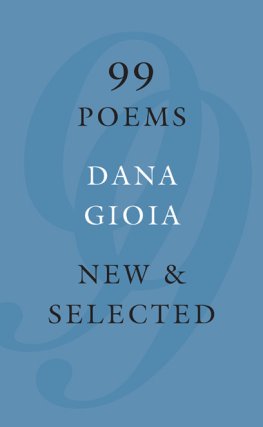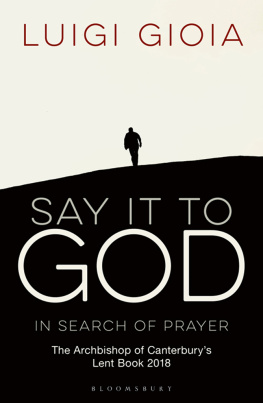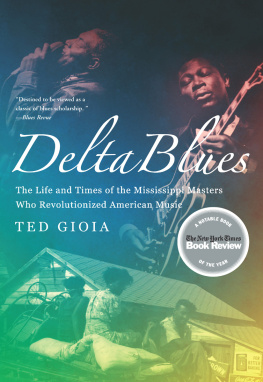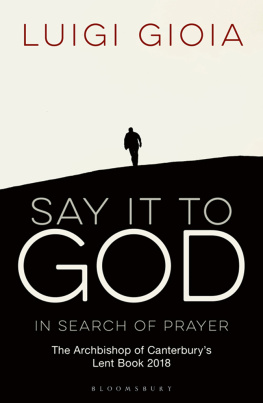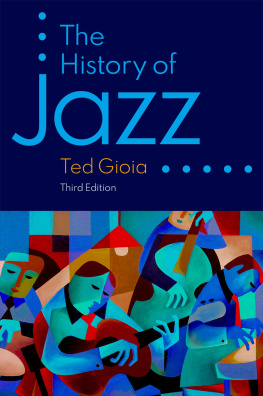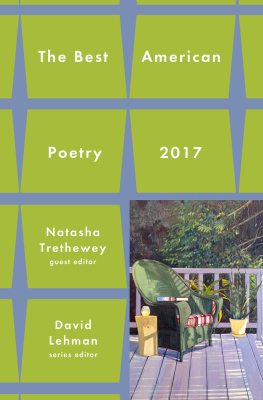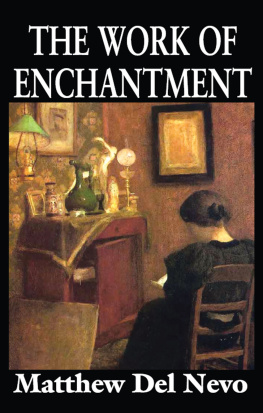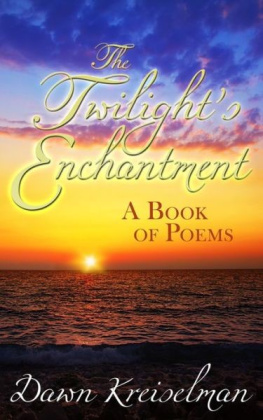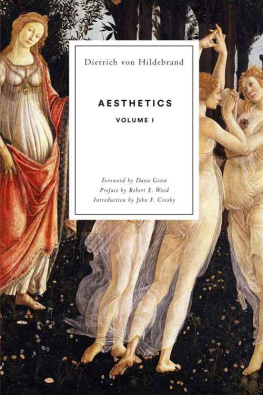Dana Gioia - Poetry As Enchantment
Here you can read online Dana Gioia - Poetry As Enchantment full text of the book (entire story) in english for free. Download pdf and epub, get meaning, cover and reviews about this ebook. publisher: The Dark Horse Magazine, genre: Religion. Description of the work, (preface) as well as reviews are available. Best literature library LitArk.com created for fans of good reading and offers a wide selection of genres:
Romance novel
Science fiction
Adventure
Detective
Science
History
Home and family
Prose
Art
Politics
Computer
Non-fiction
Religion
Business
Children
Humor
Choose a favorite category and find really read worthwhile books. Enjoy immersion in the world of imagination, feel the emotions of the characters or learn something new for yourself, make an fascinating discovery.

- Book:Poetry As Enchantment
- Author:
- Publisher:The Dark Horse Magazine
- Genre:
- Rating:4 / 5
- Favourites:Add to favourites
- Your mark:
- 80
- 1
- 2
- 3
- 4
- 5
Poetry As Enchantment: summary, description and annotation
We offer to read an annotation, description, summary or preface (depends on what the author of the book "Poetry As Enchantment" wrote himself). If you haven't found the necessary information about the book — write in the comments, we will try to find it.
Poetry As Enchantment — read online for free the complete book (whole text) full work
Below is the text of the book, divided by pages. System saving the place of the last page read, allows you to conveniently read the book "Poetry As Enchantment" online for free, without having to search again every time where you left off. Put a bookmark, and you can go to the page where you finished reading at any time.
Font size:
Interval:
Bookmark:
POETRY AS ENCHANTMENT
by Dana Gioia
Enchanter la vulgaire ralit
Guillaume Apollinaire
t here is such an enormous amount of poetry criticism and poetic theory published at present that it seems impossible that any significant topic is neglected. Yet there are inevitably blind spots. As scholars and critics pursue the themes and theories of the moment, other subjects remain overlooked. Some topics have been neglected so long that they now seem not merely unfashionable but quaint, eccentric, even disreputable. This essay explores one of those disreputable subjects, one that Im quaint enough to consider important, perhaps essential, to the art of poetry. It is a topic so remote from contemporary literary studies that there is no respectable critical term for it. Lacking a more stylish appellation, Ill borrow an antiquarian term, enchantment. That very word should cause responsible readers to cringe. What comes next? A damsel with a dulcimer? The horns of Elfland faintly blowing?
There often seems something crude or nave about essentialist views of poetry. Anyone with an advanced degree in literary studies knows there is no professional future in trying to connect the art of poetry with its putative human purposes. There are too few hard facts and too many value judgments involved to make this a safe area of academic inquiry. That is probably why the poet-critics who have made the most persuasive claims on the primal aspects of verse have mostly been outsiders, such as Ezra Pound, Robert Graves, Edwin Muir, Kathleen Raine, William Everson, Robert Bly, Les Murray, Wendell Berry, andto name one non-poetCamille Paglia. To put it mildly, these poets have not written in the language of academic discourse. They relied mostly on experiential argument, mythic allusion, historical analogy, and personal narrative, often peppered with amateur anthropology or psychology. At their worst moments, as in Gravess The White Goddess or Blys Iron John, they have claimed visionary authority. Private inspiration may be the stuff of poetry, but it is toxic to criticism. Nonetheless there is something interesting going on in the speculative work of these outsiders besides prophetic delusion or bard-envy. They share a conviction that poetryboth its creation and receptionhas great human importance that needs to be not merely understood but periodically renewed as a spiritual capacity. They also view poetry as a foundational element of education. Often reckless by scholarly standards, their criticism attempts to open new conversations rather than annotate and negotiate old ones. A little recklessness goes a long way, but sometimes literary culture needs to go a long way, too.
This essay examines what seems to me a current misapprehension about the nature of poetry. It further suggests that this misunderstanding has created problems in how the art is generally taught in schools at every level of education. To address the topic adequately would require a shelf of books in half a dozen fields. Instead, I offer some preliminary observations, hoping to intrigue rather than exhaust the reader.
Be not afeard. The isle is full of noises.
Caliban, The Tempest
let me begin with three crucial observations about the art of poetry. First, it is the oldest form of literature. Indeed, it is the primal form of all literature. Poetry even predates history because it not only existed, but flourished before the invention of writing. As an oral art, it did not require the alphabet or any other form of visual inscription to develop and perfect a vast variety of meters, forms, and genres. Before writing, poetryor perhaps one should say stood at the center of culture as the most powerful way of remembering, preserving, and transmitting the identity of a tribe, a culture, a nation. Verse was humanitys first memory and broadcast technologya technology originally transmitted only by the human body. In Robert Frosts astute formulation, poetry was a way of remembering what it would impoverish us to forget.
Frosts pithy definition is usefully ponderable. He calls poetry a way of remembering, which is to say a mnemonic technology to preserve human experience. He claims the loss of what it preserves would impoverish us, which is to say that poetry enriches human consciousness or, at the very least, protects things of common value from depredation. Finally, he asserts that poetry maintains these virtues against the human danger to forget. Here Frost acknowledges that the art opposes the natural forces of time, mortality, and oblivion, which humanity must face to discover and preserve its meaning. As Frost said elsewhere, one of the essential tasks of poetry is to give us a clarification of lifea momentary stay against confusion.
The second observation is that poetry is a universal human art. Despite post-modern theories of cultural relativism that assert there are no human universals, there exists a massive and compelling body of empirical data, collected and documented by anthropologists, linguists, and archeologists that demonstrates there is no human society, however isolated, that has not developed and employed poetry as a cultural practice. Most of this poetry, of course, has been oral poetry. Many of these cultures never developed writing. But the fact remainsand it is a demonstrable fact, not mere opinionthat every society has developed a special class of speech, shaped by apprehensible patterns of sound, namely, poetry. Cognitive science now suggests that humans are actually hard-wired to respond to the sort of patterned speech that verse represents. Like the songs of birds or dances of beesbut on a higher level of complexitypoetry reflects the unique cognitive capacity of the human mind and body. Why humanity universally needs this special class of speech is another question entirely, which will be considered in a few pages.
Third and finally, poetry originated as a form of vocal music. It began as a performative and auditory medium, linked to music and dance and associated with civic ceremony, religious ritual, and magic. (The earliest poetry almost certainly served a shamanistic function.) Most aboriginal cultures did not distinguish poetry from song because the arts were so interrelated as to be porous. Nor did the classical Greek or Chinese cultures two or three millennia ago differentiate poetry from song. Verse was not spoken in a conversational manner, which was an early twentieth century development. Poetic speech was always stylizedusually either chanted rhythmically or sung, sometimes even sung and danced in chorus.
In oral culture, there is no separation between the poet and the poem. The author is a performer who vocalizes the words. Creation and performance are inseparably linked. Without writing, a text has no existence outside the auditory performance. What matters is not fidelity to some invisible Platonic text, but the efficacy of the performance in casting a spell of heightened attention over the audiencewhom the poet or performer can actually see. Purely verbal forms of poetry only emerged gradually, probably after the invention of writing, but the arts musical origins were preserved coded in the meter and other formal elements. The development of phonetic and logographic writing systems made it possible to preserve the text of a poem on a page, and scribal technology gradually allowed poems to be written for the page. But even then authors were reluctant to sever the relationship between poet and singer. Until quite recently, poets still assumed that the typographic text would be vocalized in some way by the reader.
The poets identity as sacred or tribal singer continued to be invoked throughout Western literature from Virgils Arma virumque cano
Font size:
Interval:
Bookmark:
Similar books «Poetry As Enchantment»
Look at similar books to Poetry As Enchantment. We have selected literature similar in name and meaning in the hope of providing readers with more options to find new, interesting, not yet read works.
Discussion, reviews of the book Poetry As Enchantment and just readers' own opinions. Leave your comments, write what you think about the work, its meaning or the main characters. Specify what exactly you liked and what you didn't like, and why you think so.

